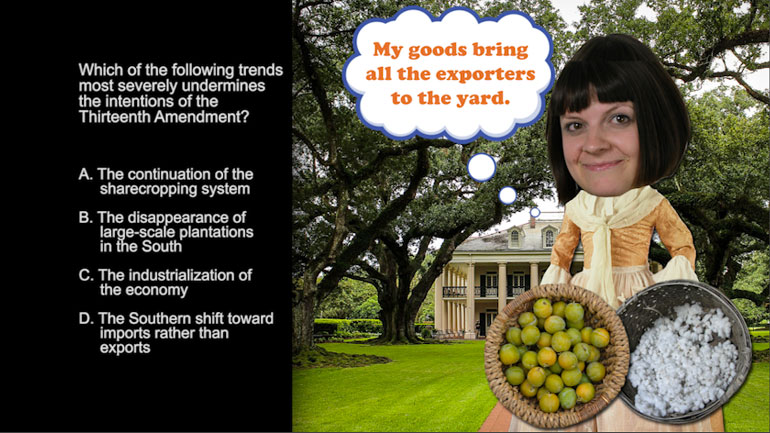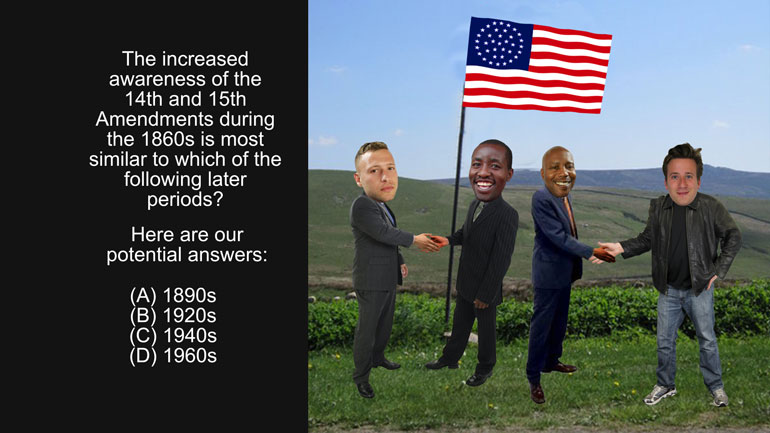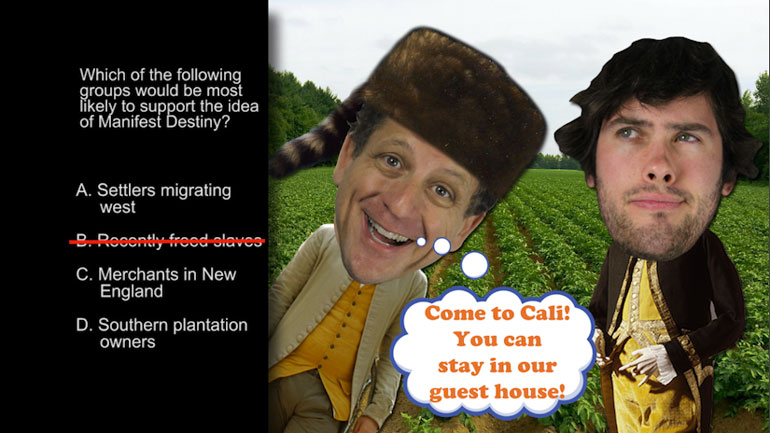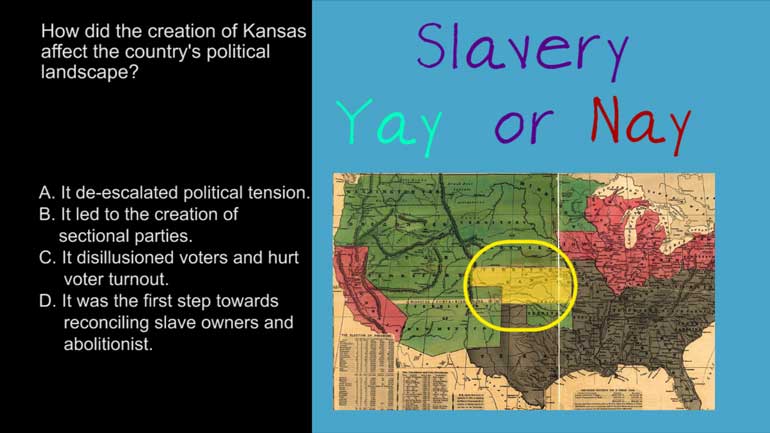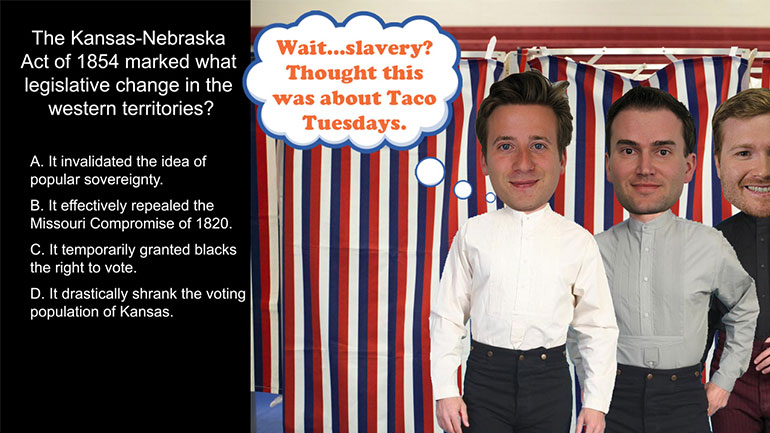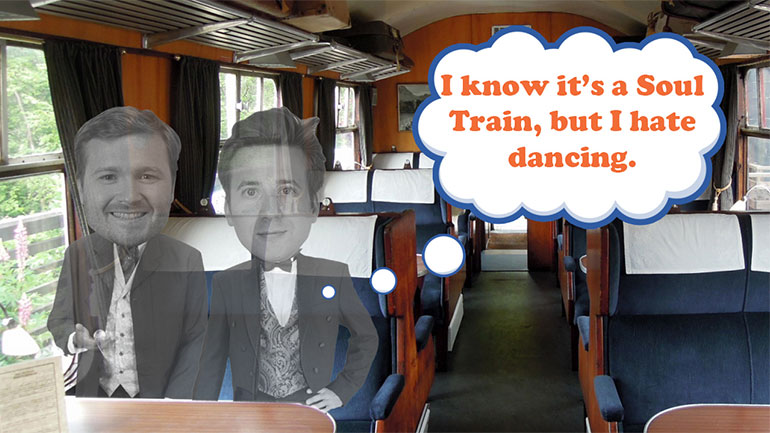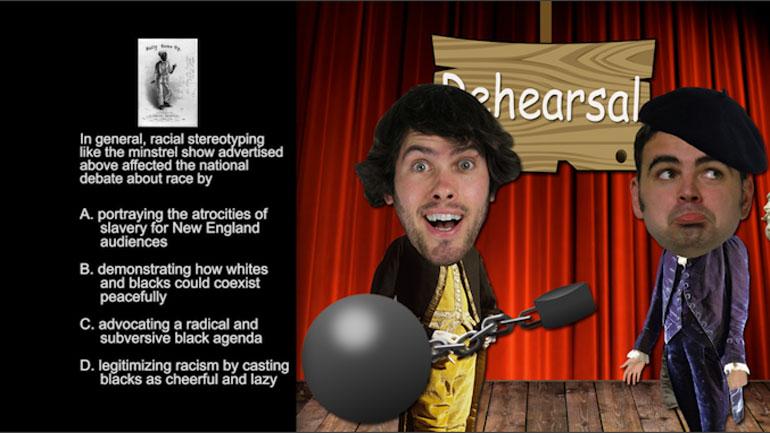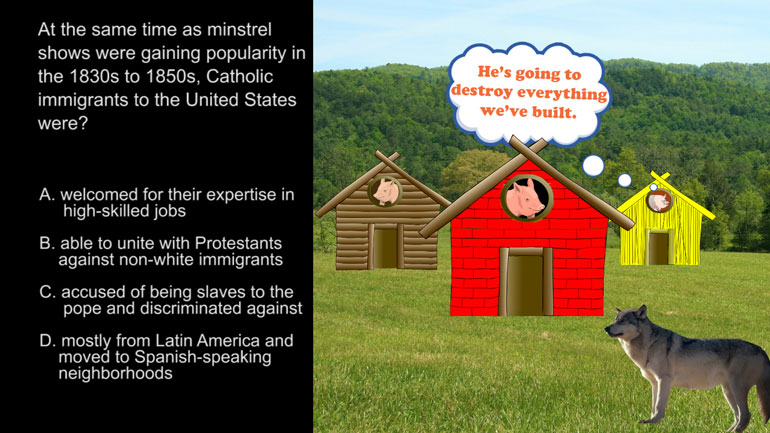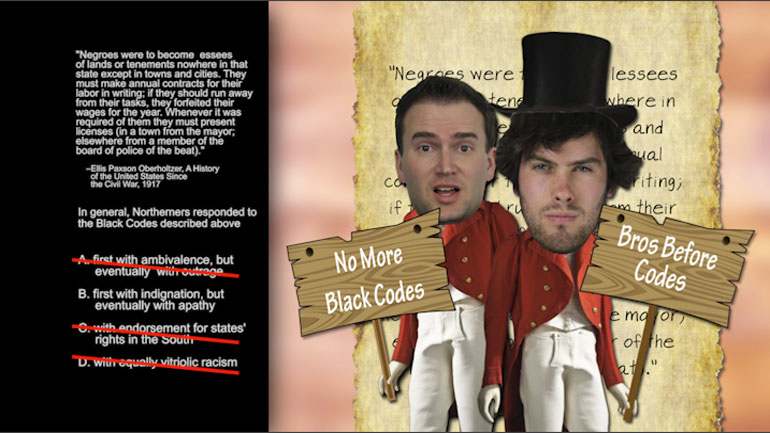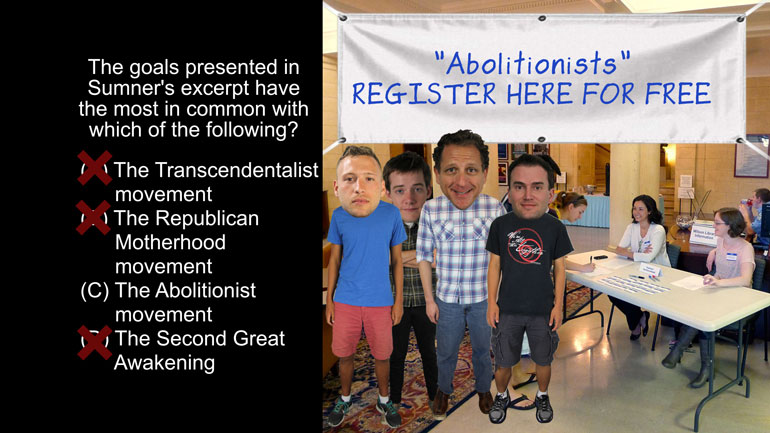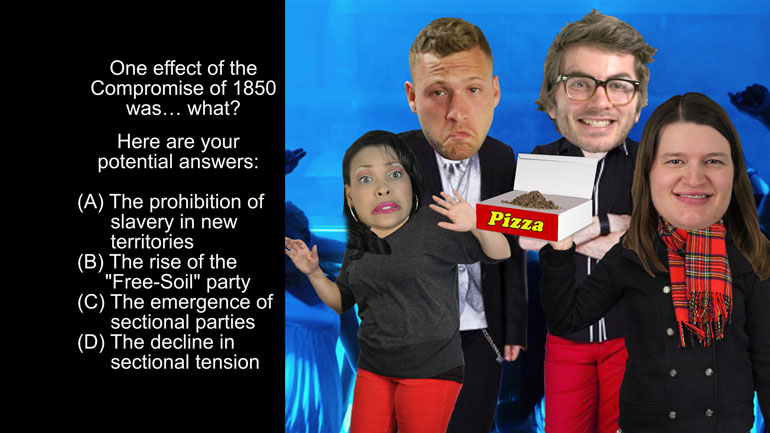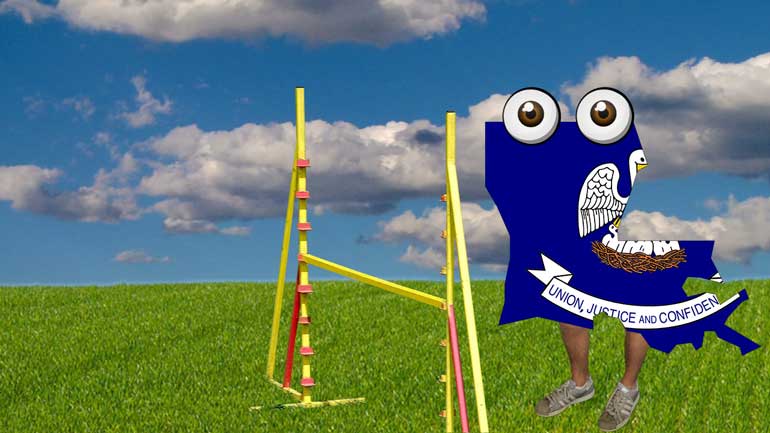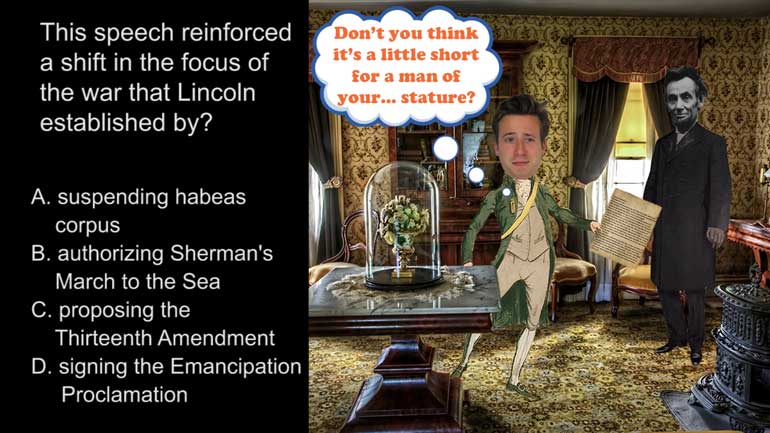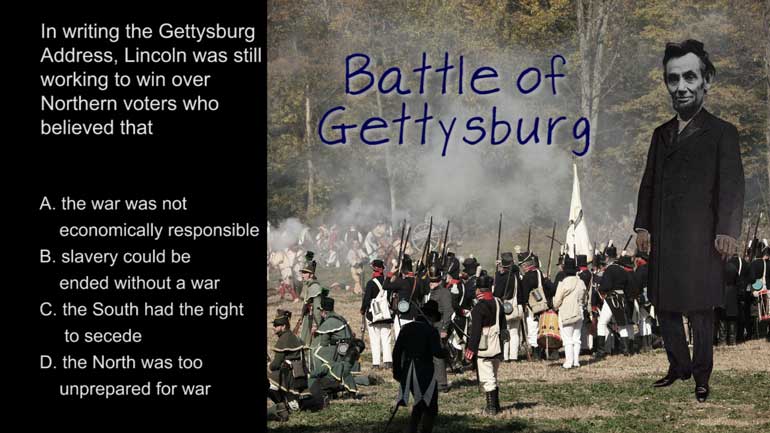ShmoopTube
Where Monty Python meets your 10th grade teacher.
Search Thousands of Shmoop Videos
Period 5: 1848-1877 Videos 18 videos
AP U.S. History 2.3 Period 5: 1848-1877. Which of the following trends most severely undermines the intentions of the Thirteenth Amendment?
AP U.S. History 4.3 Period 5: 1848-1877. The increased awareness of the 14th and 15th Amendments during the 1860s is most similar to which of the f...
AP U.S. History 1.1 Period 5: 1848-1877. Which of the following groups would be most likely to support the idea of Manifest Destiny?
AP U.S. History 1.4 Period 5: 1848-1877 221 Views
Share It!
Description:
AP U.S. History 1.4 Period 5: 1848-1877. The Kansas-Nebraska Act of 1854 marked what legislative change in the western territories?
Transcript
- 00:00
[ musical flourish ]
- 00:03
And here's your Shmoop du jour, brought to you by the Kansas-Nebraska Act,
- 00:07
the plainest vaudeville show of all time.
- 00:10
Okay, the Kansas-Nebraska Act of 1854 marked
- 00:13
what legislative change in the western territories?
Full Transcript
- 00:17
These things over here.
- 00:18
And here are your potential answers.
- 00:20
[ elephant trumpets ]
- 00:24
Okay.
- 00:25
What exactly is this question asking, people?
- 00:28
Well, we know the Kansas-Nebraska Act
- 00:30
shook things up by allowing settlers to vote on whether or not
- 00:33
they wanted slavery in the newly created territories
- 00:35
of Kansas and Nebraska. So let's see
- 00:37
which answer best describes the ramifications
- 00:40
of such a big decision.
- 00:42
Did the Kansas-Nebraska Act
- 00:43
A - invalidate the idea of popular sovereignty?
- 00:47
Well, actually, the Act was a huge boost
- 00:50
for popular sovereignty, which is the right
- 00:52
to make a decision through voting.
- 00:54
In fact, when the Act was passed, a huge number
- 00:57
of settlers rushed into the state, hoping
- 00:59
to have their say in whether Kansas would tilt towards slavery
- 01:03
or toward freedom. So that knocks out A and D.
- 01:06
Did the Kansas-Nebraska Act shake things up because C -
- 01:09
it temporarily granted Blacks the right to vote?
- 01:12
Hmm. Well, Blacks were not granted the right to vote
- 01:15
until after the Civil War, so we're about
- 01:17
ten years early on that one.
- 01:19
Which means the Kansas-Nebraska Act's biggest legislative impact was
- 01:22
B - it effectively repealed the Missouri Compromise of 1820.
- 01:27
Well, the Missouri Compromise of 1820 forbade slavery in
- 01:30
any territory north of the latitude line that marked
- 01:32
the southern border of Missouri.
- 01:34
This one, right here.
- 01:35
But Kansas and Nebraska are both north of that line.
- 01:38
And by opening the issue to a popular vote,
- 01:41
the Kansas-Nebraska Act invalidated the Compromise.
- 01:44
So B is the right answer.
- 01:46
And that must have made Missouri pretty, well,
- 01:49
Missouri-able.
Related Videos
AP U.S. History Exam 2.45. The journey shown on the map was an example of...what?
AP U.S. History Exam 2.26. This speech reinforced a shift in the focus of the war that Lincoln established by...what?
What did the Spanish messengers bring with them to North America? Hint: you probably wouldn't be thrilled to get this for your next birthday.
AP U.S. History Diagnostic 24. How did the United States choose containment over the National Security Council Report in Latin America?
AP U.S. History Exam 2.25. In writing the Gettysburg Address, Lincoln was still working to win over Northern voters who believed that...what?
